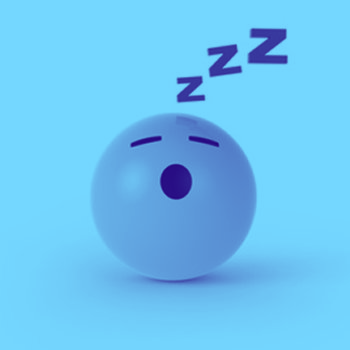Winter Snoring Advice - Support to Stop Snoring
Snoring for many is a year long concern and worry. However, it is often the case that snoring will increase over winter and those that don’t often snore can often find themselves snoring. Winter snoring and sleeping problems are nothing new but understanding why they occur and what you can do about it can help put you at ease and reduce your issues going forward.
Why is snoring more common in winter?
There are a few reasons why you may find yourself snoring more during the winter months. The first reason is that the air is generally drier during winter, which can lead to congestion in the nose and throat. This congestion can block the airway and cause snoring.Another reason is that people tend to spend more time indoors during winter, which can lead to less ventilation and more dust in the air. This can again lead to congestion and snoring. Finally, winter clothes are generally heavier and bulkier than summer clothes, which can put pressure on the chest and throat and contribute to snoring as well as blankets and heavy-duty quilts. So if you find yourself snoring more during the winter, it may be due to a combination of factors. Congestion from dry air, dust in the air, and pressure on the chest and throat can all contribute to snoring.
How to treat seasonal snoring
The good news is that seasonal snoring is often easier to treat and it shouldn’t take too much to alleviate or, at the very least, reduce your symptoms. However, you may not be aware of some of the easier ways to reduce snoring if you don’t experience snoring all that often.
Utilise a humidifier
Inflamed nasal passages can result from breathing in extremely dry air, which can also dry out your nasal passages. Dry air can therefore cause snoring. Using a humidifier can help you sleep well if your home is dry (especially during the months when you can't open the windows because of the heat or cold).
Decongest
Decongesting before bedtime is another strategy to stop snoring at night. To open up your nasal passages, you can use a Neti pot, take a hot shower, or apply a nasal decongestant.
Maintain Your Head Upright
You might discover that resting flat on your back makes your congestion worse if you're already feeling congested. Try sleeping with your head elevated to reduce snoring during sleep.
If you’ve tried all of the tips listed above and they haven’t helped, there might be something more serious at play. There is no need for concern but the earlier any sleeping issues are diagnosed, the better as you can receive the correct treatment and resources. In order to get clarity on your sleeping issues, book a consultation with a leading expert in sleep and snoring disorders with Dr Bhik Kotecha. Bhik Kotecha is at the forefront of the developing world of snoring treatment and has the experience and knowledge necessary to provide a thorough and reassuring assessment. The sooner you have clarity, the sooner you can relax and start working on the root cause of your issues.
Call us today on +44 7885 333 006 or drop us an email on
bhikkot@aol.com.








